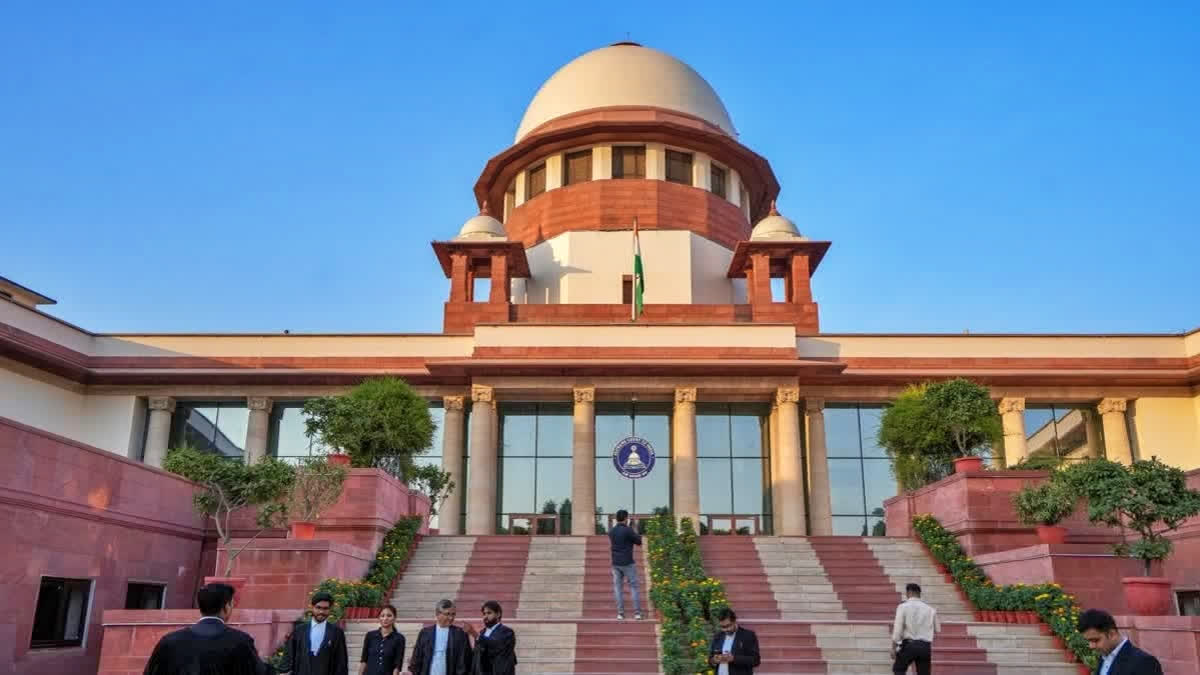New Delhi: The Supreme Court recently directed a man to deposit Rs 25 lakh with its registry within two months as permanent alimony for his estranged wife and quashed the order for impounding his passport and also nixed the extradition proceedings against him.
The couple, who got married in 2018, got separated after an 80-day tumultuous marriage. The estranged wife initiated close to a dozen legal proceedings, under the Domestic Violence Act, against the man, a USA-based software engineer, and his family members in various courts across the country.
The man’s passport was impounded in October 2018, and after he failed to appear before a trial court, authorities were instructed to initiate the extradition process against him.
Earlier this week, bringing a quietus to this rough marriage, the Supreme Court directed the husband to deposit Rs 25 lakh, with its registry within two months as permanent alimony and also quashed the order for impounding his passport and cancelled the extradition proceedings.
A bench comprising Justices Pankaj Mithal and Sandeep Mehta said: “The act of impounding the passport of the appellant by the concerned authorities of the government of India was ex-facie illegal in the eyes of the law. In the present case, the appellant’s passport was impounded on the mere premise that the respondent has filed numerous cases before the various courts in India”.
Justice Mehta, who authored the judgment on behalf of the bench, made it clear that there is no requirement for the personal presence of any party in the proceedings under the DV Act because they are quasi-criminal in nature and do not entail any penal consequences except when there is a breach of a protection order, which is the only offence provided under Section 31 of the DV Act.
“It is apparent that the appellant’s inability to travel to India and appear in the miscellaneous case, 2022, filed by the respondent (wife) under Section 26 of the DV Act, stemmed from the impoundment of his passport, a circumstance beyond his control”, noted the bench, in its judgment delivered on February 20.
The apex court said the order of the trial court directing the initiation of extradition proceedings against the appellant as a consequence of his non-appearance, despite being aware of the fact of impounding of the passport of the appellant, is untenable and unsustainable in the eyes of the law.
The apex court set aside a judgment delivered by the Calcutta High Court in January 2023, which refused to interfere with an order passed by the Howrah court to initiate extradition proceedings due to his failure to appear in proceedings under the Domestic Violence Act. The man moved the apex court against the high court judgment.
The bench said the act of impounding the passport without hearing the man was in violation of the principles of natural justice, and ex-facie illegal in the eyes of law. The apex court directed for the release of the passport within one week. The apex court decided to dissolve the marriage, on the man’s plea, and rejected the opposition by the wife, a research specialist in a reputed firm in Kolkata.
Against the backdrop of facts in the case, the bench said it gives an impression that there was hardly any meaningful marital relationship that flowed from the marriage between the parties, and the relationship appears to be strained from the beginning and has further soured over the years. “Whatever may be the justification for the spouses living separately, with so much time having passed by any marital love or affection that may have developed between the parties seems to have evanesced. This is a classic case of irretrievable breakdown of marriage”, said the bench.
The apex court directed the husband to deposit Rs 25 lakh with its registry within two months as permanent alimony, which would be disbursed to the wife within two weeks thereafter. The bench made it clear that if the wife refuses to draw the amount, it would be repaid to the husband.
The bench noted that the wife blatantly declined the said offer, stating that she was not interested in the money of the appellant as her sole intent was to have an opportunity to resume her marital life. However, the apex court, noting that no child was born out of wedlock, said: “This is a fit case warranting the exercise of the discretion conferred under Article 142(1) of the Constitution of India to dissolve the marriage between the parties on the grounds of irretrievable breakdown of marriage”.
Read More
- 'As If It's Her Surname': J&K High Court Frowns On Practice Of Labelling Divorced Women As 'Divorcees', Fines Man Rs 20,000
- Dowry Demand Not Needed To Invoke Cruelty Charge Against Husbands: SC
